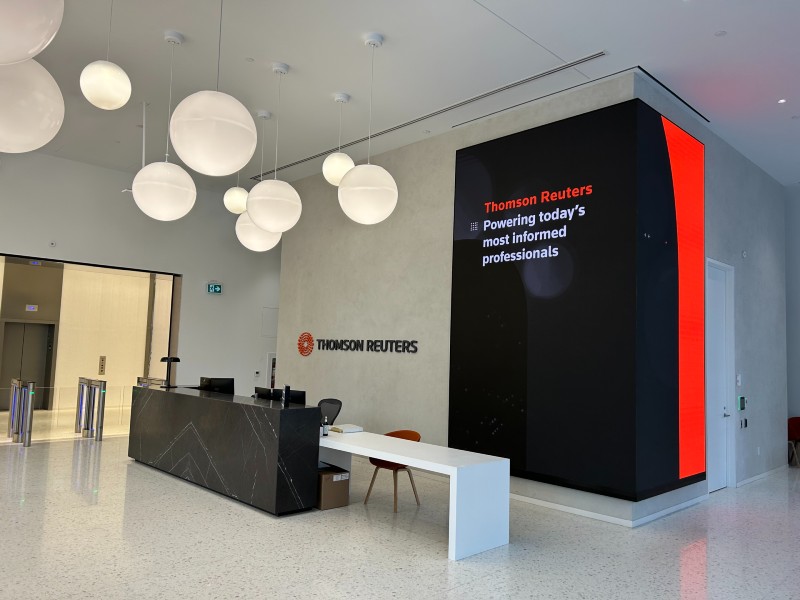

Thomson Reuters Corp. is supporting employee mental health by creating opportunities for workers to connect with each other and highlighting resources to support mental health during its month-long ‘Courage to Connect’ campaign.
The company will also hold its second annual Global Mental-Health Day Off on Oct. 23, allowing employees to fully check out of work and do something that supports their well-being, says Mary Alice Vuicic, chief people officer at Thomson Reuters.
Throughout the year, the organization will continue to leverage many of its internal tools and programs for employees to connect with each other, as well as providing extensive mental-health training for employees and leaders, she adds.
Read: Thomson Reuters supporting employee mental health with mindfulness practices, paid time off
Earlier this year, Thomson Reuters started hosting quarterly global learning days, in which its global workforce learns about a relevant topic. The inaugural edition covered artificial intelligence, including its impact on mental health. “I think roughly 7,000 [employees] joined live for the first round of sessions and participation has remained high,” says Vuicic. “[We felt it was relevant] for mental health, especially with so much changing around us. People want to feel that their employer is helping them upskill and stay relevant.”
A recent global survey by Thomson Reuters explored professionals’ opinions on AI and its possible impacts on performance and mental health. Nearly half (45 per cent) of respondents said they believe AI could improve productivity and yield benefits for talent, customers and environment.
“AI can be used to take away the mundane, more administrative work, which can be frustrating and less rewarding than high value work,” she says. “The other thing we found is professionals pride themselves in their accuracy and they perceive AI as a tool to help ensure accuracy. They often work longer hours and feel burnt out because of the amount of administrative work. So AI can play a huge role in [removing that stress] and allowing them to do the things that add more value for customers.”
When asked what factors motivate survey respondents to be more productive, they cited maintaining a healthy work-life balance (63 per cent), continuing to develop skills and knowledge (60 per cent) and providing a high-quality service (55 per cent).
Vuicic notes all of these things can be accomplished if companies leverage AI. “Overall, people are optimistic about the potential of AI, but it also brings up rethinking career paths and being more intentional. An intentional focus on where you derive your satisfaction from work is important for mental health. [When it comes to AI], you can’t sit back and let this unfold. You have to lean into it and continue to stay relevant, leveraging tools as they become available.”
Read: Expert panel: How storytelling can support employee mental health
